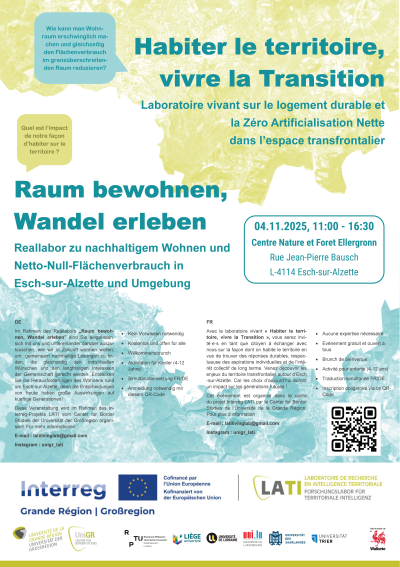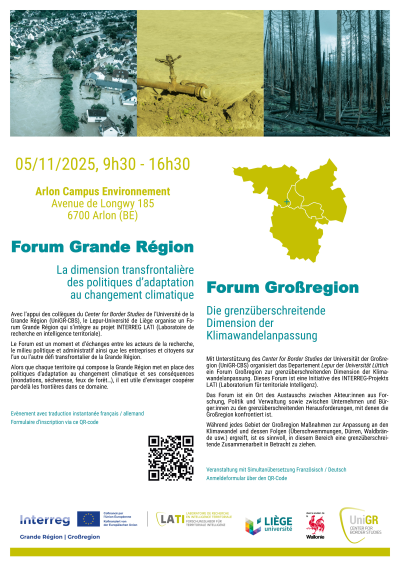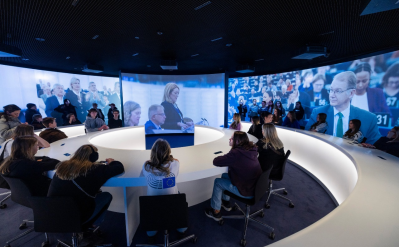Events Calendar
Categories : Presentation, Professional, Social

Digital Environmental Information – Evolution and Long-standing Challenges
Organised by "Certificate in Sustainable Development and Social Innovation"
|
See all events
Tuesday 7 May 2024
17h30
(GMT +2)
Registration deadline : 6th May
University of Luxembourg Kirchberg Campus, Room C.02
6 Rue Richard Coudenhove-Kalergi
1359
Luxembourg
Luxembourg
Registration closed
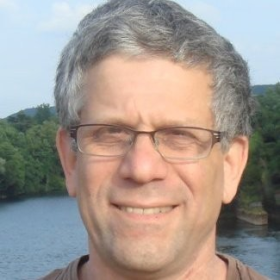
Muki Haklay has been working on environment and society issues since 1992, when the Rio Earth Summit inspired life-long research on environmental information, geospatial technology, and participatory approaches. Prof Haklay’s extensive research and publications (with over 19,000 citations according to Google Scholar) are covering a wide range of issues relating to the nature, production, and use of environmental information. Prof Haklay has been studying systems approaches for environmental management, and in particular the area of citizen science, an area in which he is considered one of the leading global experts. Prof Haklay research was funded through interdisciplinary funding sources such as the UK Engineering and Physical Science Research Council (EPSRC) “Challenging Engineering” programme, and a European Research Council (ERC) Advanced Grant. In addition, he co-led a range of interdisciplinary catalysis efforts, such as ''Bridging the Gaps'' at UCL, which accelerated collaboration around sustainability2, or the UCL Grand Challenges programme3. He has been on the ERC panels, and in 2023 selected as the chair of the SH7, and evaluator of Green Deal proposals in the Horizon Europe programme. He is a professor at UCL and a team leader at the Learning Planet Institute (formerly the Centre for Research and Interdisciplinarity) in Paris.
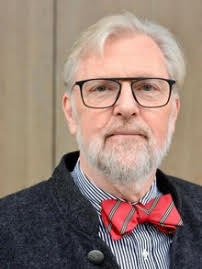
Walter J. Radermacher, PhD was Director General of Eurostat and Chief Statistician of the European Union from 2008 to 2016. He worked at Destatis, the German Federal Statistical Office, for 30 years, ultimately as its President and Federal Returning Officer. He was the first Chair of the UN Committee of Experts on Environmental-Economic Accounting (UNCEEA) from 2005 to 2008. S Since 2017, he has been a researcher at the Institute of Statistical Sciences at the Sapienza University of Rome, where he received his doctorate in 2019 and is President of the Federation of European National Statistical Societies (FENStatS). Since 2022, he has been Head of the Advisory Board on Ethics of the International Statistical Institute (ISI) and Professor (hon.) at the Institute of Statistics at Ludwig-Maximilians-Universität München. Since May 2022, he has also headed the Commission on Future Statistics (KomZS), which advises the Federal Statistical Office on its programme planning. Radermacher is the author of numerous publications in the field of statistics and the book Official Statistics 4.0 - Verified Facts for People in the 21st Century.[11] He is an Honorary Fellow of the Royal Statistical Society.
University of Luxembourg Kirchberg Campus, Room C.02
6 Rue Richard Coudenhove-Kalergi1359 Luxembourg
Luxembourg
No comment
Log in to post comment. Log in.



